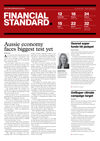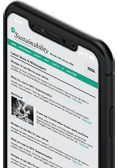Future Super measures environmental impact of portfolioBY RACHEL ALEMBAKIS | FRIDAY, 26 JUN 2020 10:10AMFuture Super has released its second impact report, measuring the fund's environmental impact both in terms of fossil fuel investments avoided and renewable energy that investments have generated. |
Editor's Choice
Green moves: Aware Super, Minderoo Foundation
CareSuper hired an ESG specialist from a rival, while Andrew Forrest's Minderoo Foundation appointed an executive director of effective philanthropy.
Macquarie AM takes over Island Green Power
Macquarie Asset Management (MAM) is now the owner of renewable energy developer Island Green Power, scooping up the remaining 50% stake.
Palliser Capital hits out at Rio Tinto board
Palliser Capital has vowed to continue pressing for governance reform at Rio Tinto after its shareholder resolution calling for an independent review of the miner's dual-listed company structure fell short at the group's annual general meeting.
ISSB looks to ease Scope 3 disclosure requirements
The International Sustainability Standards Board has proposed changes to requirements under IFRS S2 to offer clarity around existing reliefs and provide further relief in relation to specific Greenhouse Gas emissions disclosures.



















"According to recent research from Rainmaker Information ... if a superannuation fund member invested in general balanced or growth super fund options they would have been 1.5% better off over the 12-months to end March if they chose ESG balanced or growth options."
Is there a link to the research? Does this apply to Future Super's options or to some general ESG classification of investment components and therefore also to other super funds that offer ethical and sustainable social impact investment?
Hi Professor Davos,
The research is derived from Rainmaker Information, the parent company to this publication. It refers to a general balanced or growth super fund option compared to a general ESG balanced or growth option (not just Future Super).